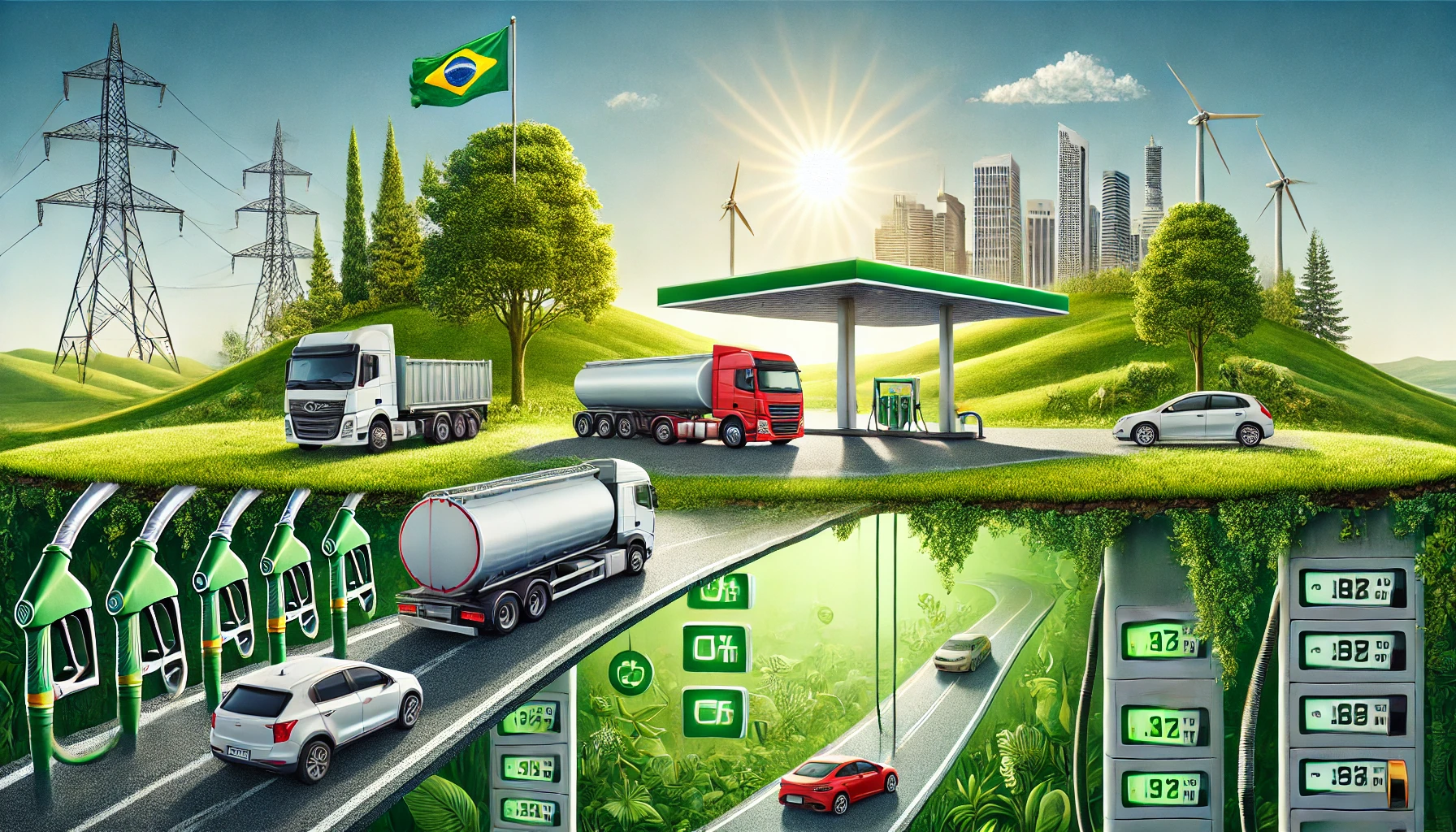Revamping Brazil's Fuel Taxes to Combat Climate Change and Support Vulnerable Populations
A World Bank report highlights the need for Brazil to overhaul its fuel taxation system to better address environmental costs, proposing higher excise taxes on fossil fuels, especially diesel, to reduce greenhouse gas emissions and mitigate the regressive impact on low-income households. The report also underscores the political challenges in implementing these changes.

A World Bank report recently delves into the implications of Brazil's consumption tax reform, particularly focusing on the opportunities for enhancing fuel taxation. The report, authored by Cornelius Fleischhaker, Daniel Navia, and Heron Rios, argues that Brazil's current approach to fuel taxation is inadequate in addressing the negative externalities associated with fossil fuel consumption, such as greenhouse gas emissions and air pollution. The authors emphasize that the ongoing tax reform offers a crucial opportunity to correct this by implementing a more robust and coherent system of fuel taxes that better reflects the true costs of fossil fuel use on society and the environment.
Complexity and Inefficiencies in the Current System
Brazil has long relied on a complex and fragmented fuel tax system, which, while significant in terms of revenue generation, has led to inefficiencies and inconsistencies. The taxation of fuels, especially diesel, has often been subject to ad-hoc changes driven by political and fiscal pressures rather than environmental considerations. This has resulted in a system where diesel, despite being a major contributor to pollution and carbon emissions, is undertaxed compared to other fuels like gasoline. The report points out that, in 2023, the total carbon price (TCP) for gasoline was equivalent to a carbon tax of 68 dollars per ton of CO2, whereas diesel effectively received a subsidy of 38 dollars per ton of CO2 due to its lower tax burden. This disparity not only undermines efforts to reduce emissions but also distorts market incentives, leading to continued overconsumption of fossil fuels and a slower transition to cleaner alternatives.
The Case for Significant Excise Taxes on Fossil Fuels
The authors argue that a significant excise tax on fossil fuels, particularly diesel, is necessary to internalize the negative externalities associated with their consumption. They propose that the new excise tax, introduced as part of the 2023 constitutional amendment, be used to address these externalities by imposing higher taxes on goods that harm health and the environment. This approach would align Brazil's fuel taxation with international best practices and help to reduce the country’s greenhouse gas emissions, which have been steadily rising due to increased use of fossil fuels in transportation. Despite Brazil’s leadership in the adoption of low-carbon fuels like ethanol, the report notes that tax policy has not played a meaningful role in curbing emissions. On the contrary, recent legislative changes in 2022, which simplified and reduced fuel taxes, have led to a reduction in effective carbon taxes, particularly for diesel. This reduction has further exacerbated the environmental impact of fossil fuel use in Brazil, as it discourages the adoption of more fuel-efficient technologies and biases transport decisions toward diesel-powered vehicles.
Addressing the Distributive Impact on Low-Income Households
One of the key challenges highlighted in the report is the distributive impact of fuel taxes. While higher-income households consume the majority of fuel in Brazil, the relative burden of fuel taxes is disproportionately borne by poorer households. The bottom 40 percent of the income distribution spends a larger share of their income on liquid fuels, making them more vulnerable to price increases. Additionally, the poor are more likely to suffer from the adverse health effects of pollution, as they are more likely to work in outdoor jobs and rely on walking as a mode of transportation. To mitigate the regressive impact of fuel taxes, the authors suggest that the revenue generated be used to support low-income households through targeted transfers or by reducing other taxes that disproportionately affect the poor. Such measures could help to offset the negative impact of higher fuel taxes on household incomes, particularly for the poorest Brazilians, who could see their incomes reduced by as much as 17 percent if all externalities are fully priced into fuel taxes.
Navigating Political Challenges in Diesel Taxation
The report also discusses the political challenges associated with increasing diesel taxes, noting that transport operators have historically resisted such measures due to their potential impact on economic activity. The authors recommend that any increase in diesel taxes be paired with measures to support the adoption of cleaner technologies, such as subsidies for investment in more fuel-efficient trucks and buses. This approach could help to reduce the environmental impact of transportation without imposing undue burdens on the economy. Furthermore, the report suggests that the ongoing tax reform should aim to create a simpler, more stable tax system that provides clear and consistent price signals to consumers. This would help to ensure that the environmental benefits of fuel taxation are realized, while also reducing the administrative burden on businesses and government.
The World Bank report emphasizes the importance of using the current tax reform as an opportunity to improve Brazil's fuel taxation system. By aligning fuel taxes with the true social and environmental costs of fossil fuel consumption, Brazil can reduce its greenhouse gas emissions, improve public health, and promote the adoption of cleaner, more efficient technologies. However, achieving these goals will require careful consideration of the distributive impact of fuel taxes and the political challenges associated with increasing diesel taxes. With the right policy measures in place, Brazil can create a more sustainable and equitable system of fuel taxation that supports both economic growth and environmental protection.
- FIRST PUBLISHED IN:
- Devdiscourse










